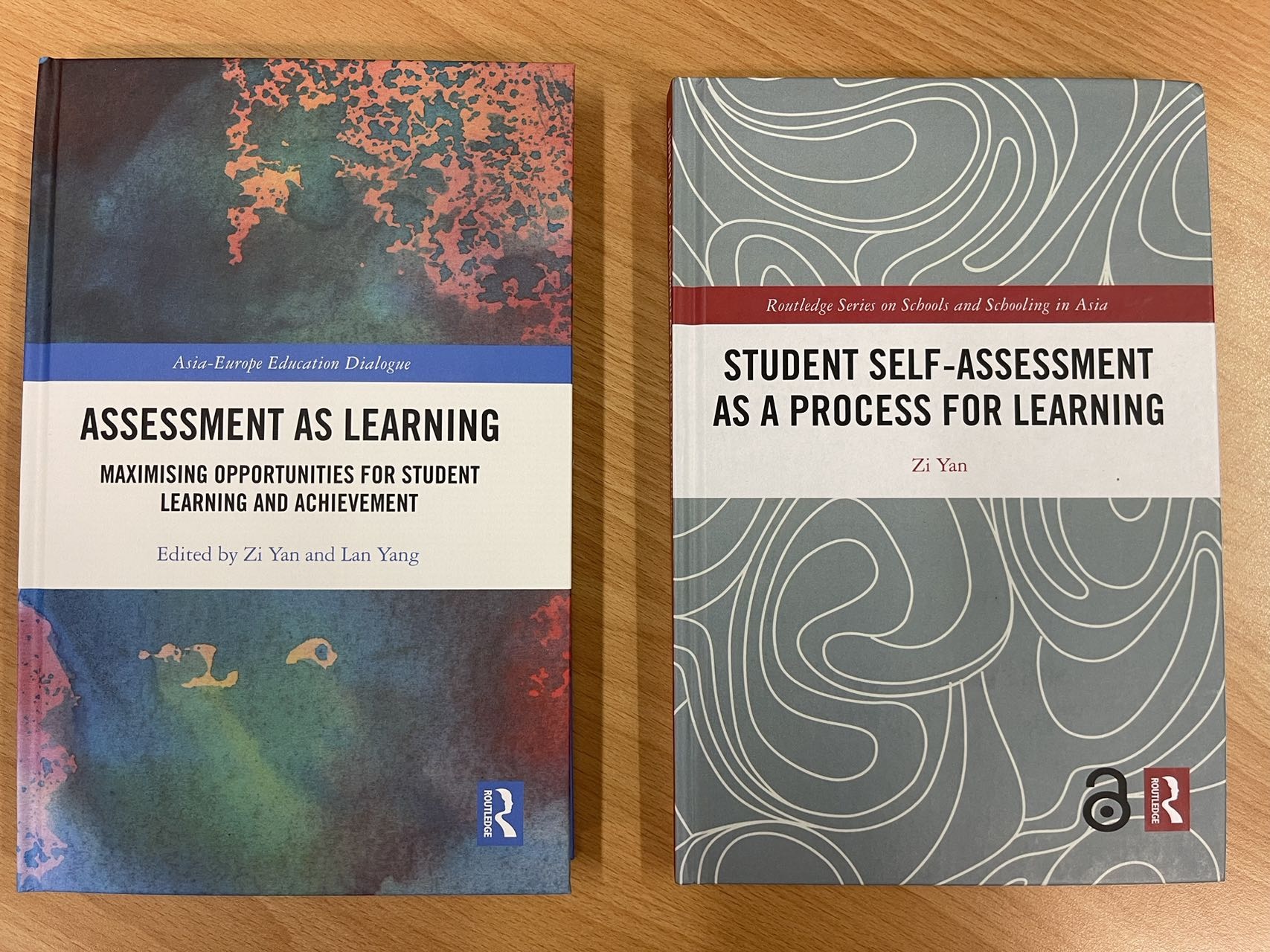- Yang, L., Yan, Z., Zhang, D., Boud, D., & Datu, J. A. D. (2023). Exploring the roles of grit and academic self-concept from a perspective of educational psychology. Assessment in Education: Principles, Policy & Practice, 1-26.
|
- Zhan, Y., Yan, Z., Wan, Z. H., Wang, X. Zeng, Y., Yang, M., & Yang, L. (2023). Effects of online peer assessment on higher-order thinking: A meta-analysis. British Journal of Educational Technology. 1-42.
|
- Lee, W. S. W., & Yang, M. (2023). Effective collaborative learning from Chinese students’ perspective: A qualitative study in a teacher-training course. Teaching in Higher Education, 28(2), 221-237.
|
- Yan, Z., Lao, H., Panadero, E., Fernández-Castilla, B., Yang, L., & Yang, M. (2022). Effects of self-assessment and peer-assessment interventions on academic performance: A meta-analysis. Educational Research Review, 37, 100484. https://doi.org/10.1016/j.edurev.2022.100484
|
- Yan, Z., & Carless, D. (2022). Self-assessment is about more than self: The enabling role of feedback literacy. Assessment & Evaluation in Higher Education, 47(7), 1116-1128.
|
- Yan, Z., Chiu, M. M., & Cheng, E. C. K. (2022). Predicting teachers’ formative assessment practices: Teacher personal and contextual factors. Teaching and Teacher Education, 114, 103718.
|
- Zhan, Y., Wan, Z. H. & Sun, D. (2022). Online formative peer feedback in Chinese contexts at the tertiary Level: A critical review on its design, impacts and influencing factors. Computers & Education, 104341
|
- Yang, L., Hsu, C. L., Ye, T., & Sin, K. F. (2022). Assessing Emotions of Teaching Assistants in Inclusive Education. Frontiers in Psychology, 13, 813726.
|
- Yan, Z. (2020). Self-assessment in the process of self-regulated learning and its relationship with academic achievement. Assessment & Evaluation in Higher Education, 45(2), 224-238.
|
- Cai, Y., Yang*, M., & Yao, J. (2022). More is not always better: the nonlinear relationship between formative assessment strategies and reading achievement. Assessment in Education: Principles, Policy & Practice, 29(6), 711-728. (*Corresponding author)
|
- Ma, N., Li, Y.-M., Guo, J.-H., Laurillard, D., & Yang*, M. (2022). A learning model for improving in-service teachers’ course completion in MOOCs. Interactive Learning Environments, 1-16. (*Corresponding author)
|
- Zhan, Y. (2022). Developing and validating a student feedback literacy scale. Assessment and Evaluation in Higher Education. 47(7), 1087-1100.
|
- Zhan, Y. (2023). What do college students think of feedback literacy? An ecological interpretation of Hong Kong students’ perspectives. Assessment and Evaluation in Higher Education. 48(5), 686-700.
|







